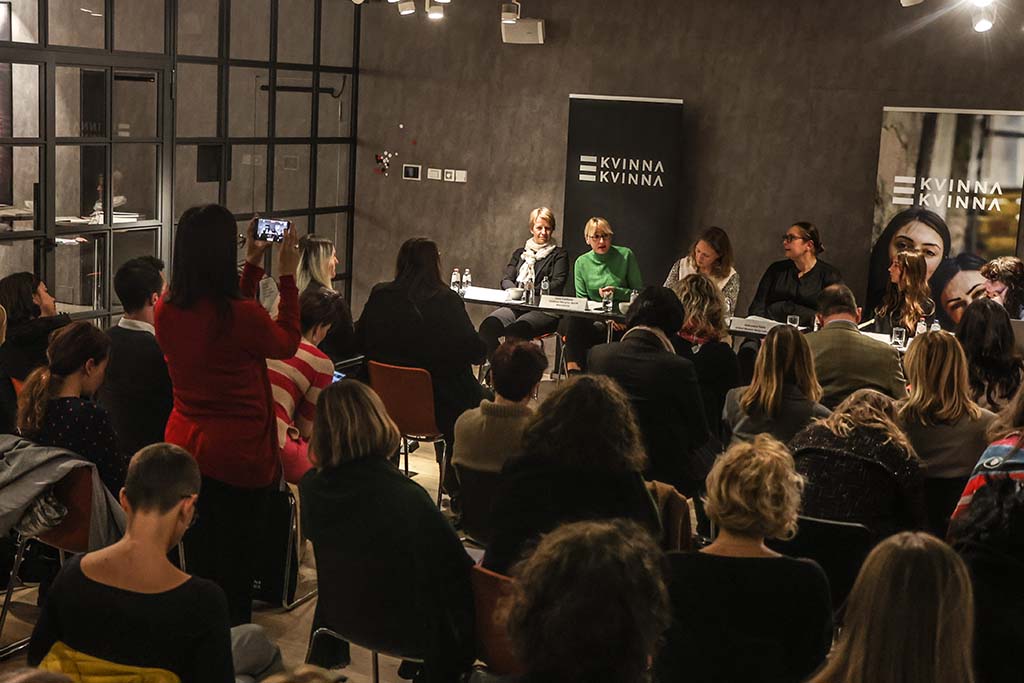Brussels: Promoting women’s participation in the Western Balkans EU accession process
As part of a larger, regional advocacy undertaking in Brussels, The Kvinna till Kvinna Foundation launches a new report on the status of women’s rights in six countries in the Western Balkans. The aim is to strengthen women’s participation in the EU accession process.

The 6th edition of the report Women’s Rights in Western Balkans (2022) examines the status of women’s rights in six Western Balkans EU accession countries: Albania, Bosnia and Herzegovina, Kosovo, Montenegro, North Macedonia, and Serbia.
Focusing on four thematic areas, it provides recommendations to national governments and the European Union and serves as a benchmark for the six countries regarding women’s rights and influence, enabling comparison over time.
“This is really a unique report. It is the only one tracking the indicators of women in politics, gender-based violence, security of women human rights defenders and women in the labour market in all six Western Balkan countries, over time,” says Sofija Vrbaški, one of the authors of the report.
Regional delegation
The report launch is part of a regional advocacy undertaking in Brussels by The Kvinna till Kvinna Foundation and partner organisations from the Western Balkans. Once a year, a delegation of women civil society organisations from all six Western Balkans countries comes to Brussels for face-to-face meetings with EU officials and members of the European Parliament. During these visits, the delegation shares analyses of the regional context and policy areas relevant to the EU accession.
This year, the meetings took place between November 14th and 18th. The Western Balkans delegation took the opportunity to address a wide array of issues, from the European Commission country reports, to shrinking space for civil society and threats to democracy and stability in the region.
Strategic allies
Throughout the week, the Western Balkans delegation emphasised that women civil society organisations must be recognised as partners and important actors in the dialogue on the future of their respective countries and in relation to the EU accession process. Women’s rights and gender equality are tightly interconnected with EU integration in the Western Balkans and women make up a large constituent. Hence, EU partnership with civil society organisations is particularly important in strengthening public support for EU membership amidst growing disenchantment with a stagnated accession process.
As women civil society representatives are at the forefront of the fight for democracy, rule of law, and lasting peace and stability, they are also a strategic ally to the EU.
“I think it is shameful that some EU officials are not asking our governments where the women in negotiations and important institutions are; why they are not included in decision-making processes, even though they make up the majority of the population in some of the Western Balkan countries”, says Aleksandra Petrić from Kvinna till Kvinna’s partner organisation Foundation United Women Banja Luka in Bosnia and Herzegovina.